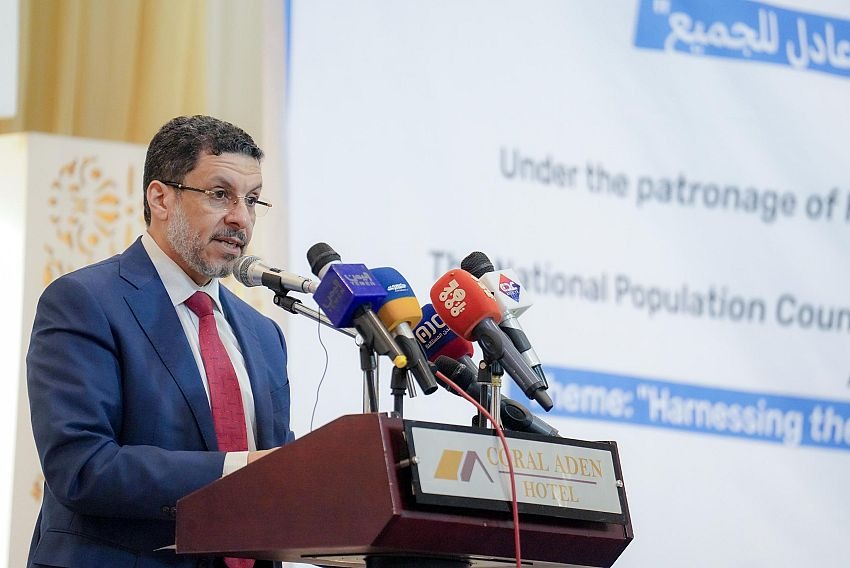


Barran Press
Yemeni Prime Minister Ahmed bin Mubarak on Sunday, July 28, 2024, acknowledged the significant financial, economic, and population challenges facing his government amidst the ongoing war waged by the Houthi group, internationally designated as a terrorist organization. He underscored the Houthi's deprivation of the Yemeni people from their resources.
Mubarak made these remarks during a ceremony held in Aden, the temporary capital of Yemen, to commemorate World Population Day 2024, organized by the National Population Council.
He addressed the challenges of balancing population growth with sustainable development, emphasizing that population dynamics and demographic diversity are crucial factors in a nation's strength or weakness, depending on the prevailing social, educational, economic, and health characteristics.
Mubarak stressed that Yemen's significant population growth necessitates the development of national policies and strategies to balance population increase with development. He highlighted the daunting challenges facing the government in providing basic services, managing economic difficulties, optimally utilizing natural resources, reducing poverty and unemployment, creating job opportunities, and building infrastructure capable of accommodating population growth.
He pointed to the financial and economic pressures on the government stemming from the ongoing war by the Houthi group, which has deprived the Yemeni people of access to their resources.
Regarding demographic challenges, Mubarak stated that 45% of the population is under 16 years old, with 65% of the population being of working age. He expressed concern over the fact that 50% of children suffer from chronic malnutrition, leading to 21% experiencing stunting. He urged serious attention to these figures and prioritizing them in all plans, programs, and spending.
He also touched upon the challenges of displacement due to the war and the continued influx of refugees into Yemen, lamenting the lack of adequate international support from international organizations. He criticized the UN's unbalanced distribution of humanitarian programs, which he said continues to rely on 2004 data despite the significant changes brought about by the war and unprecedented displacement.
Mubarak reiterated the government's priorities, which he stated are achieving peace, upholding the legal framework of the state, combating corruption, promoting accountability and transparency, implementing financial and administrative reform, developing economic resources, and making optimal use of foreign aid and grants.
He declared that his government will adopt a balanced population policy aimed at achieving equilibrium between population growth and the demands of sustainable development. This includes encouraging investment in infrastructure necessary to manage population growth, ensuring human rights, promoting equality of opportunity between men and women, and enhancing women's participation in decision-making.
The internationally recognized Yemeni government faces significant economic challenges, exacerbated by the suspension of oil exports following attacks by the Houthis on oil export terminals in late 2022. This has led to a reliance on alternative sources of revenue, such as tax and customs income, which can only partially compensate for the lost oil revenue.
In early July, the World Bank warned of the consequences of the continued suspension of oil exports. In its report, it stated that the public finances of the internationally recognized government had significantly deteriorated in 2023. Revenue had declined by over 30% due to the sharp drop in oil revenues and the reduction in customs revenue as imports were redirected from Aden to ports under Houthi control.